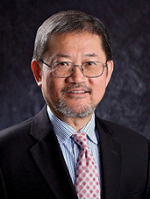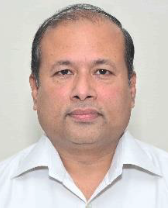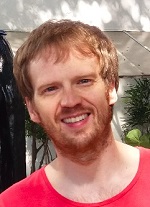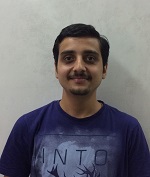Plenary Session
Title: Exploring Artificial Intelligence for the Reliability Evaluation of Electric Power Systems
Abstract:
Resource additions to electric power grids are planned in advance to maintain the reliability of electric power supply. This is achieved by performing reliability studies for calculating reliability indices at the planning stage to ensure that the required levels of reliability will be met. Reliability evaluation involves both searching the system state space for states that represent the events of interest, typically failure of the system or a given bus to satisfy the demand. This essentially translates into a search procedure that can identify states to be examined and then a procedure to characterize the identified states whether demand can be met in those states. Traditionally reliability analysis search methods are based either on an enumeration process or Monte Carlo. Since the dimensionality of state space is a huge issue, the enumeration processes employ some techniques to group states into subsets, whereas Monte Carlo methods use sampling. Further techniques such as importance sampling have been used to reduce the number of states in Monte Carlo Sampling (MCS).
In the past two decades, reliability evaluation methods based on artificial intelligence have been widely investigated. Most of these researches can be generalized within two broad groups. One approach utilizes intelligent search algorithms as an alternative to MCS. Focus on Intelligent Search algorithms is to generate the dominant failure states rather than success states. In this fashion, much fewer states need to be evaluated compared to MCS. The second approach is based on evaluating sampled system states by utilizing AI-based classifiers within the MCS process. AI classifiers increase the computational efficiency of MCS since they can characterize system sates faster than optimal power flow. This talk will examine the conceptual basis of the overall reliability evaluation process and explore the role of artificial intelligence methods in this context.
About the speaker

Chanan Singh is a Regents Professor and Irma Runyon Chair Professor in the Department of Electrical and Computer Engineering, Texas A&M University, College Station, Texas, USA. He served as the Department Head of Electrical and Computer Engineering Texas A&M from 1997 to 2005 and then as an Interim Head from 2012 to 2015. He also served as Program Director at the National Science Foundation of USA and a Guest Professor at Tsinghua University, Beijing, China.
His research and consulting interests are in the foundational developments and applications of probabilistic methods for planning and operation of electric power grid.
Dr. Singh is a member of US National Academy of Engineering, Fellow of the IEEE, recipient of the Outstanding Power Engineering Educator Award given by the IEEE Power Engineering Society and the inaugural recipient of the IEEE-PES Roy Billinton Power System Reliability Award.
He was recognized with the Merit Award by the PMAPS International Society for life long achievements.
Title: Smart Distribution Systems: Reliability, Resiliency and Security
Abstract
Smart distribution systems in the future will extend the capabilities to meet the emerging resiliency and cyber-physical system security requirements. There are important opportunities and challenges for the application of intelligent systems and machine learning. Recent development of the smart grid significantly enhances the level of automation in the distribution grids. With high level deployment of remote-controlled switches, distribution feeders can be restored efficiently after power outages. There is an increasingly important role for microgrids to enhance the resiliency of distribution systems. Traditional techniques, however, are not designed for extreme events on the distribution grid, such as severe weather-related conditions and cyber intrusions. The same is true for widely adopted reliability indices. New thinking of system design, operation, and metrics will be important for resiliency and security of future distribution grids.
About the speaker

Chen-Ching Liu is American Electric Power Professor and Director, Power and Energy Center, at Virginia Tech, Blacksburg, VA, USA. He was Boeing Distinguished Professor at Washington State University, Pullman, WA. During 1983-2005, he was a Professor of Electrical Engineering at University of Washington, Seattle. Dr. Liu was Palmer Chair Professor at Iowa State University from 2006 to 2008. From 2008-2011, he served as Acting/Deputy Principal of the College of Engineering, Mathematical and Physical Sciences at University College Dublin, Ireland. Dr. Liu was Program Director for Power Systems at the U.S. National Science Foundation during 1994-95.
Professor Liu received an IEEE Third Millennium Medal in 2000 and the Power and Energy Society Outstanding Power Engineering Educator Award in 2004. In 2013, Dr. Liu received a Doctor Honoris Causa from Polytechnic University of Bucharest, Romania. Chen-Ching chaired the IEEE Power and Energy Society Fellow Committee, Technical Committee on Power System Analysis, Computing and Economics, and Outstanding Power Engineering Educator Award Committee. He served on the U.S. National Academies Board on Global Science and Technology. Professor Liu is a Fellow of the IEEE and Member of the Washington State Academy of Sciences. Dr. Liu is the US Representative on CIGRE Study Committee D2: Information Systems and Telecommunication and a Distinguished Lecturer of the IEEE Power and Energy Society.
Professor Liu is a co-founder of the series of ISAP conferences; he was the founding President of the international Intelligent System Applications to Power Systems (ISAP) Council and Chair of the ISAP Board of Directors.
Title: Smart Grid Solutions Using Advanced Computation Techniques
Abstract
Over the last few decades , population growth, scarcity in fossil fuel, environmental pollution, and global warming are affecting the energy, environment, and economic scenarios of the entire world. The aforesaid driving forces motivate the power sector to reinforce new technologies for delivering secure, reliable but affordable energy to the users. Penetration of renewable energy plants (solar, wind, etc.,) and construction of energy efficient buildings are the major foot steps toward the aim of green and clean power grid for the future energy sector. Sustainable development of the traditional power grid with the inclusion of green energies and modern control strategies brings social, economic, and environmental benefits to the society. Consequently, the new proficient grid structure is named as smart grid. However, rapid variation in climate on the earth makes the renewable generation forecasting methods very complex and that also needs a huge data storing facility. In addition, deregulation of power sector allows private parties into the distribution systems. Therefore, electricity prices even in small consumer level will be subjected to the uncertainty because of these market forces. Again, application of demand side management and demand response strategies are becoming a challenging task due to variability in life style of the consumers. Classical solution processes fails to address these new smart grid problems and may lead to erroneous decisions for optimal, secure and reliable synergistic dispatch of source-load-storage units. Hence, new solution techniques like soft computing processes, game theory and risk averse analyses are emerging in recent time period to help the power engineers for successful deployment of the smart grid.
About the speaker

Dr. Narayana Prasad Padhy, born on 31st August 1969 in Berhampur (Orissa), India and received his Degree in Electrical Engineering, Masters (Power Systems Engineering) with Distinction and Ph.D., (Power Systems Engineering, Guindy engineering college, Anna University, Chennai, India) in the year 1990, 1993 and 1997 respectively. Immediately after Ph.D., he joined the Department of Electrical Engineering, Birla Institute of Technology and Sciences (BITS), Pilani, India, as an Assistant Professor and worked till July 1998. Then he joined the Department of Electrical Engineering, University of Roorkee and now Indian Institute of Technology (IIT) Roorkee, India, as a Lecturer, Assistant Professor, Associate Professor and Professor during July 1998, Feb. 2001, Feb. 2006 and April 2008 respectively.
During 2005-2006 he has visited the Department of Electronics and Electrical Engineering, University of Bath, UK under Better Opportunities for Young Scientists in Chosen Areas of Science & Technology (BOYSCAST) Fellowship Scheme of Ministry of Science and Technology, Govt. of India. During 2009-2010 he has visited the Department of Electrical and Computer Engineering, Ryerson University, Toronto, Ontario, Canada. He has also been awarded “Humboldt Research Fellowship for Experienced Researchers” by Alexander von Humboldt Foundation, Germany in the year 2009 to carry out research in the area of renewable generations at University Duisburg Essen, Germany.
He has profound research experience in power systems and Smartgrid and received research grant of Rs 17 crores (equivalent to 2.388 million USD) to carry out the following international projects as a lead/co-lead principal investigator. Indo-UK Smart Energy Grids and Energy Storage technologies project titled “High Energy and Power Density (HEAPD) Solutions to Large Energy Deficits”, Demonstration of MW-scale Solar Integration in weak grids using Distributed Energy Storage architecture (D-SIDES), Indo Danish collaboration for data-driven control and optimization for a highly Efficient Distribution Grid (ID-EDGe). U.S.-India collaborative for smart distribution System with Storage (UI-ASSIST), Zero peak Energy building Design for India (ZED-I) and e-PV Diesel generator.
He has handled more than 20 consultancy/research contracts that includes Office of Gas and Electricity Market (OFGEM), UK in the area of Distribution Network Pricing with Wind Generations. He has delivered more than 100 invited guest lectures and attended 25 international academic/regulator’s meeting. He has published (single author) a text book titled ‘Artificial Intelligence and Intelligent Systems’ with Oxford University Press in 2005, Prepared the SI Version of the text book and solution manual for Cengage Learning Publishing Company titled Power Systems Analysis and Design by Glover, J. Duncan, Sarma, Mulukutla S., Overbye, Thomas. in 2009 and a text book titled ‘Soft Computing with Matlab Programming’ with ‘Oxford University Press’ in 2015. He has also delivered popular NPTEL course on “Introduction to Smart Grid” which has received wide attention across the country with over 20K views since July 2018 and has been requested to rerun for the upcoming session. He has 33 Ph.D., 62 M.Tech guidance and 179 International Publications to his credit.
Currently he is a full time Senior Professor, Dean of Academic Affairs, Institute Chair Professor and also worked as Professor in Charge Training and Placement at IIT Roorkee and NEEPCO Chair Professor. He has been Nominated both as a Fellow of Indian National Academy of India (FNAE) and Fellow of The Institution of Engineering and Technology, UK (FIET). Recognizing his contribution in the power system and smart grid, IEEE Power & Energy Society, USA awarded him with IEEE PES Chapter Outstanding Engineer Award in the year 2018. His contribution to the technical society has been recognized by the Institution of Engineers and awarded as Eminent Engineer. The Tata also awarded Prof Padhy for valuable contribution in smart city and smart grid technologies in India. He is also the chair of the working group on network pricing, PES IEEE. He is also representing India as a national lead in Mission Innovation Challenges #1 on Smart Grid and is also handling a resource centre on Mission Innovation challenge on Smart grids at IIT Roorkee funded by DST, India.
Tutorial Session
Title: Evolutionary Computation Applications in the Smart Grid Domain
Abstract
In this tutorial, it will be discussed the complexity of some smart grid (SG) problems, including energy resource management (ERM) in SG. In fact, typical mathematical approaches rely on simplifications to make the formulations tractable. When the models are close to real-world situations, issues related to scalability, execution time, memory computing requirements, or even uncertainty, arise and limit the applicability of these standard tools. To overcome such limitations, computational intelligence (CI), a family of problem-solving/stating techniques that attempt to exhibit the intelligence observed in nature, has successfully been applied to complex problems in the energy domain. This tutorial revises some CI approaches, mainly Evolutionary Computation (EC), for solving complex SG problems, envisaging the potential of such techniques and future research venues of CI in the energy domain. In addition, it will be presented an overview of some tools and applications to solve a variety of case studies. Several EC optimization algorithms for energy dispatching and vehicle-to-grid/smart charging, demand response, renewables, and energy optimization in buildings will be presented.
About the speakers

João Soares has a BSc in computer science (2008) and a master’s degree in Electrical Engineering (2011) in Portugal, namely from Polytechnic of Porto. He attained his PhD degree in Electrical and Computer Engineering (2017) at UTAD university. He currently conducts researcher at GECAD – Research Group on Intelligent Engineering and Computing for Advanced Innovation and Development in the School of Engineering of the Polytechnic of Porto and has been recently an invited professor at Ecole Centrale De Lille in the L2EP. He coordinates two projects in the field of energy resource management in smart grids and smart buildings with application of computational intelligence techniques. His research interests include optimization in power and energy systems, including heuristic, hybrid and classical optimization. He published more than 100 publications in this field and his works have been cited over 2000 times (H-index 23 in google scholar).

Pedro Faria works in the field of power systems with focus on energy markets, smart grids, and demand response. The current work includes renewable-based distributed generation, energy storage, and electric vehicles. In these fields, optimization, clustering, and classification methods have been applied to real and simulated environment problems. Those include methods based on artificial intelligence, namely meta-heuristics and data-mining.
He has been developing business models for the modelling, aggregation, and remuneration of consumers participating in electricity markets and in demand response programs. He has also worked in real-time simulation of power and energy systems, namely using the OPAL-RT platform and Hardware In the Loop (HIL) technics.
Pedro Faria participated in a significative number of national and international research projects contributing with models and their implementation, testing, demonstration and piloting. He has several scientific management and coordination responsibilities in those projects, being namely the leader of work packages and tasks in international projects and the GECAD leader of one national project.
Pedro Faria is author of 1 patent and of more than 130 scientific papers.
Title: Application of Soft Computing Techniques in Power Systems
Abstract
Growing power demand in all over the world forces the power sector for expanding power generation capacity and also size of the transmission network to supply power at doorstep of every consumers. However, unregulated demand profile makes the generation unit commitment procedure complex and causes serious power imbalance situation. Conventional solution processes like lambda iteration, dynamic programming fail to overcome the afore-mentioned deficiencies due to their limitation to handle large problems with multiple variables. That is why, soft computing techniques are emerging in recent time to address the power system problems. This tutorial aims to discuss elaborately about several soft-computing tools like Artificial Neural Network, Fuzzy logics, evolutionary optimization techniques and swarm optimization techniques. In addition, it will present the application of the soft computing techniques to the power system problems like load forecasting, economic dispatch and unit commitment of thermal generators.
About the speaker

Dr. Narayana Prasad Padhy, born on 31st August 1969 in Berhampur (Orissa), India and received his Degree in Electrical Engineering, Masters (Power Systems Engineering) with Distinction and Ph.D., (Power Systems Engineering, Guindy engineering college, Anna University, Chennai, India) in the year 1990, 1993 and 1997 respectively. Immediately after Ph.D., he joined the Department of Electrical Engineering, Birla Institute of Technology and Sciences (BITS), Pilani, India, as an Assistant Professor and worked till July 1998. Then he joined the Department of Electrical Engineering, University of Roorkee and now Indian Institute of Technology (IIT) Roorkee, India, as a Lecturer, Assistant Professor, Associate Professor and Professor during July 1998, Feb. 2001, Feb. 2006 and April 2008 respectively.
During 2005-2006 he has visited the Department of Electronics and Electrical Engineering, University of Bath, UK under Better Opportunities for Young Scientists in Chosen Areas of Science & Technology (BOYSCAST) Fellowship Scheme of Ministry of Science and Technology, Govt. of India. During 2009-2010 he has visited the Department of Electrical and Computer Engineering, Ryerson University, Toronto, Ontario, Canada. He has also been awarded “Humboldt Research Fellowship for Experienced Researchers” by Alexander von Humboldt Foundation, Germany in the year 2009 to carry out research in the area of renewable generations at University Duisburg Essen, Germany.
He has profound research experience in power systems and Smartgrid and received research grant of Rs 17 crores (equivalent to 2.388 million USD) to carry out the following international projects as a lead/co-lead principal investigator. Indo-UK Smart Energy Grids and Energy Storage technologies project titled “High Energy and Power Density (HEAPD) Solutions to Large Energy Deficits”, Demonstration of MW-scale Solar Integration in weak grids using Distributed Energy Storage architecture (D-SIDES), Indo Danish collaboration for data-driven control and optimization for a highly Efficient Distribution Grid (ID-EDGe). U.S.-India collaborative for smart distribution System with Storage (UI-ASSIST), Zero peak Energy building Design for India (ZED-I) and e-PV Diesel generator.
He has handled more than 20 consultancy/research contracts that includes Office of Gas and Electricity Market (OFGEM), UK in the area of Distribution Network Pricing with Wind Generations. He has delivered more than 100 invited guest lectures and attended 25 international academic/regulator’s meeting. He has published (single author) a text book titled ‘Artificial Intelligence and Intelligent Systems’ with Oxford University Press in 2005, Prepared the SI Version of the text book and solution manual for Cengage Learning Publishing Company titled Power Systems Analysis and Design by Glover, J. Duncan, Sarma, Mulukutla S., Overbye, Thomas. in 2009 and a text book titled ‘Soft Computing with Matlab Programming’ with ‘Oxford University Press’ in 2015. He has also delivered popular NPTEL course on “Introduction to Smart Grid” which has received wide attention across the country with over 20K views since July 2018 and has been requested to rerun for the upcoming session. He has 33 Ph.D., 62 M.Tech guidance and 179 International Publications to his credit.
Currently he is a full time Senior Professor, Dean of Academic Affairs, Institute Chair Professor and also worked as Professor in Charge Training and Placement at IIT Roorkee and NEEPCO Chair Professor. He has been Nominated both as a Fellow of Indian National Academy of India (FNAE) and Fellow of The Institution of Engineering and Technology, UK (FIET). Recognizing his contribution in the power system and smart grid, IEEE Power & Energy Society, USA awarded him with IEEE PES Chapter Outstanding Engineer Award in the year 2018. His contribution to the technical society has been recognized by the Institution of Engineers and awarded as Eminent Engineer. The Tata also awarded Prof Padhy for valuable contribution in smart city and smart grid technologies in India. He is also the chair of the working group on network pricing, PES IEEE. He is also representing India as a national lead in Mission Innovation Challenges #1 on Smart Grid and is also handling a resource centre on Mission Innovation challenge on Smart grids at IIT Roorkee funded by DST, India.
Title: A Tour of Machine Learning
Abstract:
Machine learning, including deep learning, are fast emerging as active research areas with applications in diverse domains. This tutorial introduces the basic concepts of machine learning and presents exciting applications that have been built using learning models. It also discusses various settings in which learning algorithms are used, as well as the working of a conventional learning pipeline. Recent work on building sparse models and working with unbalanced datasets would also be presented.
About the speakers

Sumit Soman holds a Ph. D. from the Department of Electrical Engineering, IIT Delhi. He is a Principal Technical Officer with the Health Informatics group at the Centre for Development of Advanced Computing. His research interests include brain computer interfaces and machine learning. He was a recipient of the Director General, CDAC’s Young Innovator Award 2019 and has over 40 research publications in reputed conferences and journals.

Mayank Sharma holds a Ph. D. from the Department of Electrical Engineering, IIT Delhi. He completed his B.Tech. in Electrical Engineering from the Indian Institute of Technology, Kharagpur, West Bengal, India. He is working as an Applied Scientist at Amazon. His research interests include large scale machine learning, deep learning, bioinformatics and sparse learning.

Prof. Jayadeva is the Head of the Department of Electrical Engineering at Indian Institute of Technology, Delhi. He currently holds an Institute Chair. He has served as Associate Editor of the IEEE Transactions on Neural Networks, and the IEEE Transactions on Cybernetics. He has served on the Steering and Program Committees of several international conferences. He is the co-author of the books “Numerical Optimization with Applications”, and “Twin Support Vector Machines: Models, Extensions and Applications” (Springer). Notable work includes the Twin SVM, that is insensitive to class imbalance. As of December 2019 it has over 950 citations and was the subject of review articles in Neurocomputing, AI Review, Neural Computing and Applications, the Annals of Data Science, and the Egyptian Informatics Journal. His group was amongst the first to fabricate a SVM based application VLSI ASIC, that contained an A/D converter using a bank of analog SVM classifiers. A more recently taped out chip is likely the first ant colony optimization based network router to be realized on silicon.